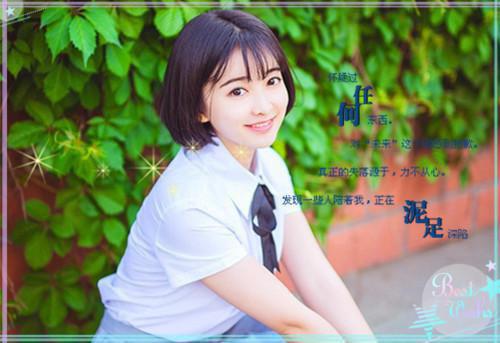关于中国传统文化的英语作文
关于中国传统文化的英语作文
导语:中华五千年孕育了博大精深的民族文化,21世纪中国文化,就在我们手中!下面是小编为大家整理的.英语作文,希望对大家有所帮助。更多相关的知识,请关注CNFLA学习网!
中国传统文化的英语作文
The Culture of China is home to one of the world's oldest and most complex civilizations. China boasts a history rich in over 5,000 years of artistic, philosophical, political, and scientific advancement. Though regional differences provide a sense of diversity, commonalities in language and religion connect a culture distinguished by such significant contributions such as Confucianism and Taoism. Confucianism was the official philosophy throughout most of Imperial China's history and strongly influenced other countries in East Asia. Mastery of Confucian texts provided the primary criterion for entry into the imperial bureaucracy.
With the rise of Western economic and military power beginning in the mid-19th century, Western systems of social and political organization gained adherents in China. Some of these would-be reformers rejected China's cultural legacy, while others sought to combine the strengths of Chinese and Western cultures.
China is a unified nation consisting of many different ethnic groups. Fifty-six different ethnic groups make up the great Chinese national family. Because the Han people accounts for more than ninety percent of China's population, the remaining fifty-five groups are generally referred to as "ethnic minorities." Next to the majority Han, the Mongolian, Hui, Tibetan, and Uygur peoples comprise the largest ethnic groups. Although China's ethnic minorities do not account for a large portion of the population, they are distributed over a vast area, residing in every corner of China.
Particularly since the implementation of China's opening and reform policy, the central government has increased investment in minority areas and accelerated their opening to the outside world. This has resulted in an upsurge of economic development in these areas. Each of China's ethnic minority groups possesses a distinctive culture. The Chinese government respects minority customs, and works to preserve, study, and collate the cultural artifacts of China's ethnic minority groups. The government vigorously supports the development of minority culture and the training of minority cultural workers, and fosters the development of traditional minority medicine.
The relation among China's ethnic groups can be described as "overall integration, local concentration, mutual interaction." Concentrations of ethnic minorities reside within predominantly Han areas, and the Han people also reside in minority areas, indicating that there has been extensive exchanges among China's ethnic groups since ancient times. With the development of the market economy, interaction among ethnic groups has become even more active in the areas of government, economics, culture, daily life, and marriage. Linked by interdependence, mutual assistance, and joint development, their common goals and interests creating a deep sense of solidarity, China's ethnic groups resemble a great national family, together building Chinese civilization.
关于中国传统文化的英语作文
The information revolution, the development of mass media and the achievements in science and technology have doubtlessly ushered us in a rapidly progressing society, where we may have no time to talk about our traditional culture. In the city, no one can escape from the fast pace.
We eat the popularized fast food and enjoy the popularized "fast food" culture. Since we get so used to such fast things that many traditional things have been neglected, some people believe that the traditional culture will gradually be lost, but I think it will never be lost.
Although entertainments are in abundance nowadays, traditional cultures still continue to dominate.
We still regard going to a concert as a luxury. Many classic books touch a string from generation to generation in spite of time and space.
And we are still moved by the inspirational spirits of our great ancestors.Traditional festivals remind us of our disposition to the traditional culture. Our relief in traditional culture gets ready to revive at any time.
To some traditional cultures that are on decline, we have taken active measures to conserve them. Experts have come up with proper advice on protecting such cultures. Many volunteers have dedicated themselves to studying them. First and foremost,more and more people have discerned the importance of the traditional culture. Therefore, we are sure that our efforts will lead to a brilliant future.
If a culture wants to gain an eternal life, it should change itself to cater to the people in its age. So does our traditional culture. Traditional cultures adhering to modern means appear rigorous. For example, we make CDs for classic music so that it can not only meet modern needs but also spread further and more successfully in the modern world. The appearance of traditional culture changes, but the essence will never change and will be well accepted.
There is no need to worry about whether our traditional culture will be lost. It is an important heritage of the whole human race. No culture, no mankind. We cherish the traditional culture as we cherish our blood in our body. The traditional culture lies in life, forever continuing.



